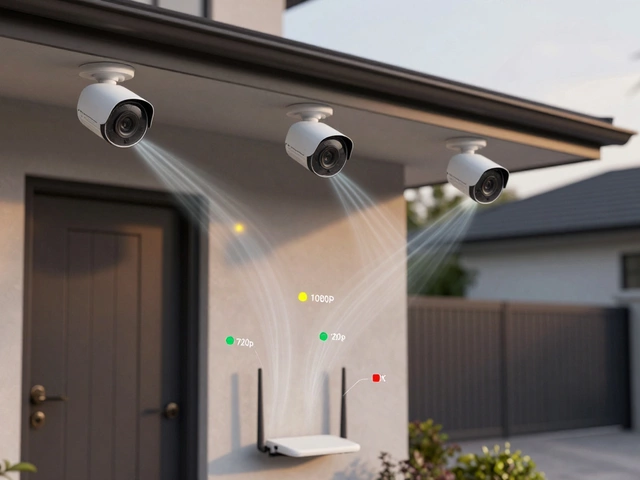Security Cost Guide – What You’ll Pay for Home Protection
When you think about securing your house, the first question is usually the price tag. You want solid protection, but you don’t want the bill to blow your budget. The good news is that security costs are fairly transparent once you know the pieces that make up the final number. Below we break down those pieces, give you realistic UK price ranges for 2025, and share easy ways to keep the spend under control.
Breaking Down the Main Cost Elements
The total cost of a security system can be split into three buckets: equipment, installation and ongoing monitoring. Equipment includes sensors, cameras, a control panel and any smart hub you need. In the UK a basic DIY kit starts around £100, while a full‑featured wired system can hit £300‑£500.
Installation is the next big chunk. If you hire a professional, expect to pay £150‑£400 depending on the size of your property and how many zones you need. Some companies waive the fee if you sign a monitoring contract.
Monitoring fees are the recurring cost that keeps the alarm centre watching 24/7. Most providers charge £15‑£30 per month for a basic plan, with premium options (video storage, mobile alerts, police liaison) running up to £50.
Don’t forget the smaller items that sneak in later: battery replacements (£10‑£20 per sensor), annual service visits (£30‑£60), and optional upgrades like smart locks or flood sensors. Add those up and you have a clear picture of where the money goes.
Tips to Keep Your Security Budget in Check
First, ask yourself what you really need. A small flat might only require a door sensor, a window sensor and a smartphone‑linked camera. That could be under £250 total, plus a £15 monthly monitoring fee.
If you’re on a tighter budget, consider a DIY kit. Brands now ship pre‑wired panels that you can set up yourself, cutting the installation fee entirely. Many UK retailers also offer “install‑free” deals when you commit to a 24‑month monitoring contract.
Second, bundle services. Some providers give a discount if you add fire detection or carbon‑monoxide alarms to the same package. The savings can be £5‑£10 off each month, which adds up fast.
Third, shop around for insurance discounts. Most insurers lower premiums by 5‑15% if you have a certified alarm system. That reduction often outweighs the cost of a slightly more expensive monitoring plan.Finally, keep an eye on contract terms. Some companies lure you with a low introductory price that jumps after 12 months. Always read the fine print and ask for a clear price‑escalation schedule before you sign.
By understanding each cost component, comparing real‑world price points, and using the tips above, you can build a security system that fits your needs without draining your wallet. The right balance means you stay safe, save money, and enjoy peace of mind every day.



